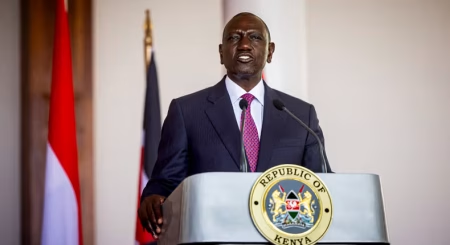Africa’s tech scene is buzzing, and artificial intelligence (AI) is the spark lighting up the continent’s entrepreneurial fire. From healthtech to agritech, AI startups are tackling Africa’s toughest challenges with audacious solutions. But raw talent and big ideas need nurturing, and that’s where incubators and accelerators come in—acting as the rocket fuel for the next wave of innovation. Think Nigeria’s Co-Creation Hub (CcHub) turning healthtech dreams into reality or South Africa’s Injini reshaping education with AI-driven EdTech. These programs aren’t just handing out cash; they’re building ecosystems that empower African founders to compete globally. Yet, hurdles like urban bias and funding gaps persist. Let’s unpack how incubators and accelerators are powering Africa’s AI boom, and what it’ll take to keep the momentum going.
The Launchpad: Incubators and Accelerators in Action
Incubators and accelerators are the unsung heroes of Africa’s AI revolution, offering startups the trifecta of funding, mentorship, and networks. Nigeria’s Co-Creation Hub (CcHub), a pioneer since 2010, has supported over 600 startups, including AI-driven healthtech ventures like LifeBank, which uses machine learning to optimize blood supply chains. CcHub’s 2023 HealthTech Innovation Challenge awarded $100,000 to AI startups, with winners reporting a 40% revenue boost within a year, per internal data. By providing co-working spaces, technical training, and investor connections, CcHub turns scrappy ideas into scalable businesses.
In South Africa, Injini is redefining EdTech. Its accelerator program backs AI startups like Siyavula, whose adaptive learning platform personalizes math education for thousands of students. Injini’s 2024 cohort saw startups raise $2 million collectively, thanks to its pitch coaching and global investor showcases. Beyond funding, Injini offers market access, helping startups navigate Africa’s fragmented education systems. “Incubators like ours don’t just fund startups; we give them wings to solve real-world problems,” says Injini’s CEO, Krista Davidson.
Across the continent, programs like Kenya’s iHub and Rwanda’s kLab are equally impactful. iHub’s AI Lab has mentored ventures like Ubenwa, a Nigerian startup using AI to detect newborn health issues via cry analysis, which secured $500,000 in seed funding in 2024. kLab, backed by Rwanda’s government, offers free prototyping facilities, helping AI agritech startups like AcrePredict develop crop-yield models for smallholder farmers. These hubs are more than incubators—they’re bridges to global markets.
The Policy Boost: African Union’s AI Strategy
The African Union’s Continental AI Strategy, endorsed in June 2024 and slated for adoption in February 2025, is a shot in the arm for startup ecosystems. It calls for increased investment in incubators and accelerators, emphasizing public-private partnerships and youth-driven innovation. Rwanda, a frontrunner with its National AI Policy, has allocated $10 million to its Rwanda Innovation Fund, which supports hubs like kLab. The AU’s strategy also pushes for harmonized regulations to ease cross-border scaling, a boon for startups eyeing pan-African growth.
Global players are joining the party. Google’s Africa Startup Accelerator has trained 200 AI startups since 2022, with graduates raising $50 million collectively. Microsoft’s 4Afrika Initiative partners with hubs like CcHub to provide cloud credits and AI tools, leveling the playing field for resource-strapped founders. These partnerships align with the AU’s vision of making Africa a global AI contender by 2030.
The Roadblocks: Urban Bias and Funding Gaps
Despite the progress, incubators and accelerators face challenges. Most hubs are concentrated in urban centers like Lagos, Nairobi, and Cape Town, leaving rural innovators underserved. A 2024 Disrupt Africa report found that 80% of Africa’s startup funding flows to just four countries—Nigeria, Kenya, South Africa, and Egypt. This urban bias limits the reach of AI solutions for rural sectors like agriculture, which employs 60% of Africans.
Funding remains a bottleneck. While African startups raised $4.8 billion in 2024—a 20% jump from 2023, per Partech Africa—AI startups often struggle to secure early-stage capital. Accelerators like Injini offer seed grants, but amounts rarely exceed $50,000, insufficient for compute-heavy AI development. High-performance computing access is another hurdle, with only 10% of African startups able to afford cloud services, per Research ICT Africa.
Sector-specific support is also lacking. Healthtech and EdTech dominate incubator portfolios, but fields like AI for climate or fintech need more tailored programs. “We need accelerators that understand the nuances of AI in agriculture or energy, not just generic tech,” says Tunde Fafunwa, founder of Ghana’s AI4Dev, an AI advocacy group. Regulatory uncertainty adds friction, with only 27 African countries having data protection laws, per the AU, slowing AI adoption in sensitive sectors.
The Opportunity: Africa’s Entrepreneurial Spirit
Africa’s startup ecosystem is thriving, thanks to its youthful, entrepreneurial spirit. With a median age of 19, the continent is a hotbed of innovation. In 2024, Africa had 7,000 active startups, a 15% increase from 2023, per Disrupt Africa. AI-focused hubs are tapping this energy, with programs like AfriLabs, a network of 400 innovation centers, training 10,000 entrepreneurs annually. Social media buzz on X highlights the excitement, with posts noting a 300% surge in AI startup pitches at recent African tech summits.
Women-led startups, often overlooked, are gaining traction. CcHub’s Women in Tech Accelerator has supported 50 AI ventures since 2022, with graduates like HealthTracka raising $1 million for AI diagnostics. These programs prove that diversity drives innovation, a lesson more hubs should embrace.
The Path Forward: Scaling Impact
To supercharge Africa’s AI boom, incubators and accelerators must evolve. First, they need to expand beyond urban hubs, establishing satellite programs in rural areas. Mobile innovation labs, like those piloted by AfriLabs, can bring resources to underserved regions. Second, funding models must innovate—think revenue-based financing or AI-specific venture funds to bridge the early-stage gap. The AU’s proposed $500 million AI Investment Facility could be a game-changer if executed well.
Sector-specific accelerators are critical. Hubs focused on AI for agriculture, climate, or fintech could unlock untapped potential, aligning with Africa’s economic priorities. Partnerships with universities, like Makerere’s AI Lab in Uganda, can nurture talent and research, feeding the startup pipeline. Finally, regulatory clarity is non-negotiable. Governments must fast-track data and AI policies to build investor confidence.
Africa’s AI revolution is no pipe dream—it’s happening now. Incubators and accelerators are the engines, turning bold ideas into reality. From CcHub’s healthtech wins to Injini’s EdTech breakthroughs, these programs are proving that African innovation can rival the world’s best. With the right support, the continent’s entrepreneurs won’t just join the global AI race—they’ll lead it.






